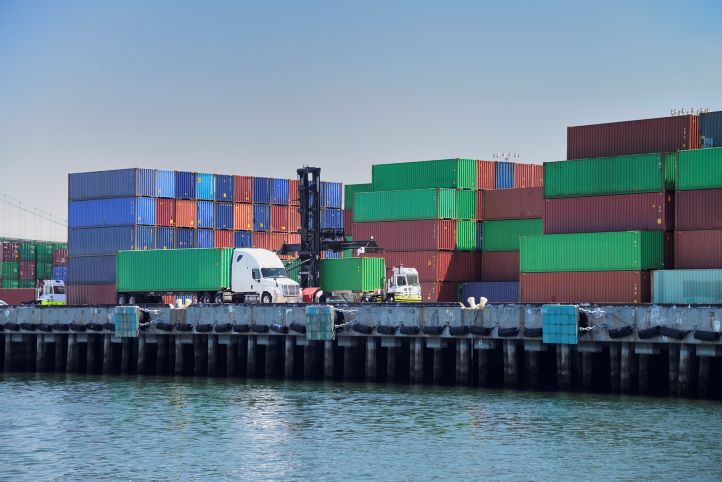WASHINGTON — The U.S. Department of Transportation’s Federal Highway Administration (FHWA) is announcing $148 million in grants to 11 states and Puerto Rico under the first round of a new $400 million program to improve air quality and reduce pollution for truck drivers, port workers and families that live in communities surrounding ports.
The Reduction of Truck Emissions at Port Facilities Grant Program, which was created by the President’s Bipartisan Infrastructure Law (BIL), invests in port electrification and efficiency improvements. This program aims to reduce pollution from idling trucks at our nation’s ports while modernizing infrastructure and strengthening supply chains.
“When truckers spend hours idling at ports, it’s bad for drivers, bad for supply chains, and bad for nearby communities that feel the brunt of more polluted air,” said U.S. Transportation Secretary Pete Buttigieg. “The investments we are announcing today will save truck drivers time and money and help ports reduce congestion and emissions, while making the air more breathable for workers and communities.”
In this first round of grant awards, FHWA has funded 16 projects that reduce pollution in communities adjacent to ports, which, the agency says, “disproportionately bear the negative environmental impacts of idling trucks.”
Specific truck emissions reductions implemented include replacing diesel-powered trucks serving ports with zero or low emissions electric or alternative fuel-powered trucks, constructing electric vehicle charging infrastructure, employing port roadway access improvements, and studying technology enhancements to reduce truck emissions. For example:
“The projects funded under this program will improve the quality of life for workers and families impacted by pollution from idling trucks while building a clean-energy economy that combats climate change and makes our communities more resilient,” said Federal Highway Administrator Shailen Bhatt. “Port-related trade is good for the economy — which is why we are pleased to announce this investment from President Biden’s Bipartisan Infrastructure Law that will make a real difference for people who live and work near ports.”
California is receiving $49.7 million for port improvements. The Ports of Long Beach, Oakland and Los Angeles will receive funding to replace diesel- and gas-powered trucks and shuttle buses with zero-emission technologies, electric trucks and EV chargers.Texas is receiving $26.9 million for improvements to the Port of Houston, including 30 new zero-emission, short-haul trucks and portable electric chargers for battery electric vehicle trucks to make zero-emission technology accessible and more affordable to owners and operators of small trucking fleets. It will also pay for the installation of new automated terminal operating systems to reduce truck idling times.
Georgia is receiving $15.3 million toward improvements at the Port of Savannah, including to build large-scale charging project near the port, replace diesel-powered trucks, and expand the use of low-emission and zero-emission equipment.
Florida is receiving $10 million for Talleyrand Marine Terminal in Jacksonville and the Port Everglades Terminal in Fort Lauderdale to replace diesel-powered trucks, while terminal improvements at the Seaboard Port of Miami will reduce truck idling time at the gates.
Louisiana is receiving $7.1 million to purchase 14 new all-electric heavy-duty terminal trucks and five light-duty pickup trucks to replace diesel vehicles currently in use. Funding also will be used to upgrade electrical infrastructure and evaluate new emissions-reducing equipment.
New Jersey is receiving $2.2 million to replace 20 diesel trucks with more efficient, environmentally friendly vehicles that run on clean, low-emitting propane fuel.
Born in Pine Bluff, Arkansas, and raised in East Texas, John Worthen returned to his home state to attend college in 1998 and decided to make his life in The Natural State. Worthen is a 20-year veteran of the journalism industry and has covered just about every topic there is. He has a passion for writing and telling stories. He has worked as a beat reporter and bureau chief for a statewide newspaper and as managing editor of a regional newspaper in Arkansas. Additionally, Worthen has been a prolific freelance journalist for two decades, and has been published in several travel magazines and on travel websites.












How can I apply for some of this grant?
I would need to buy a cab and equipment, for testing.
I believe I can make something that should work.
Wayne